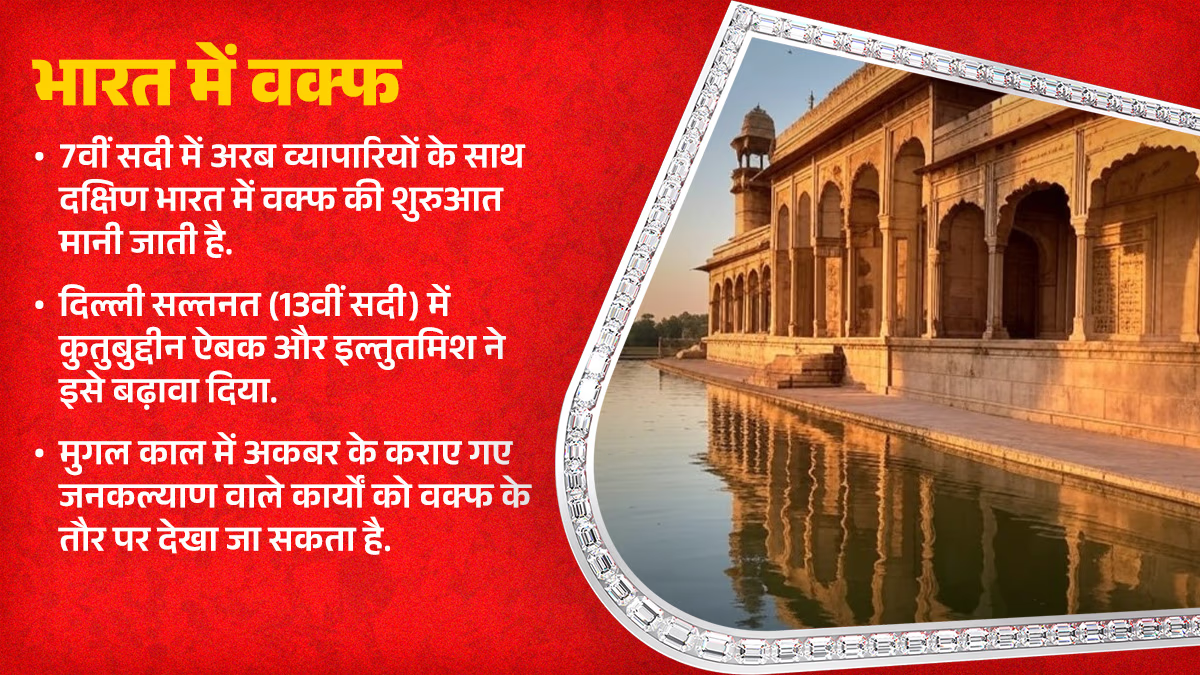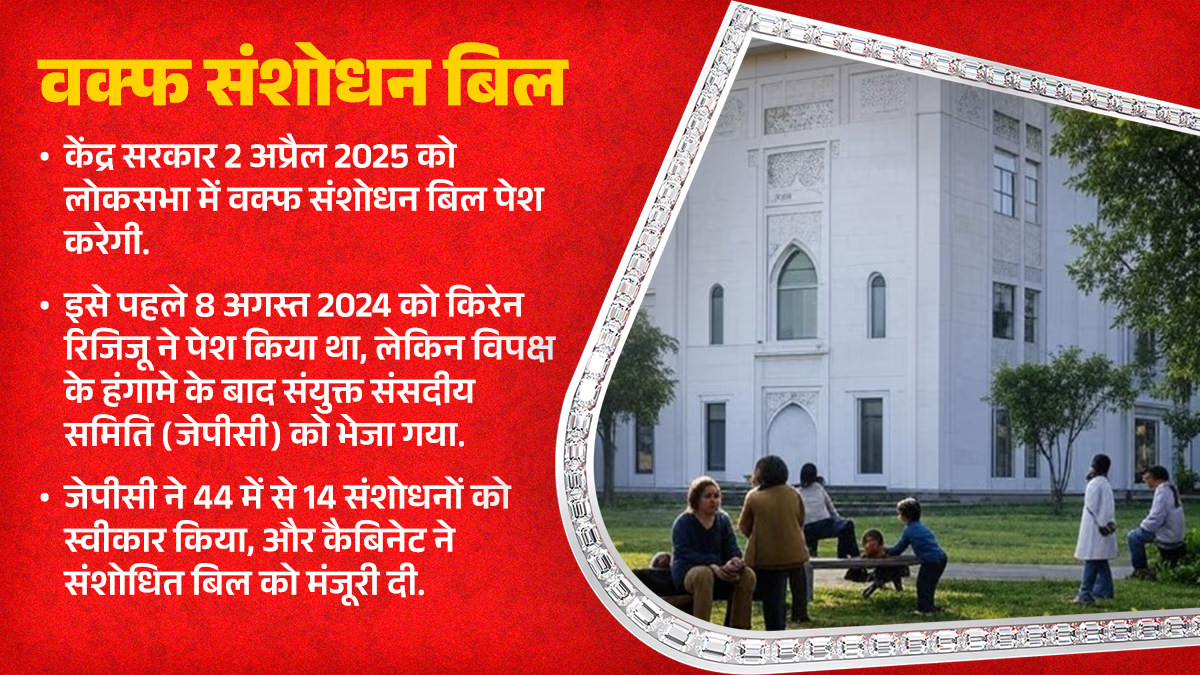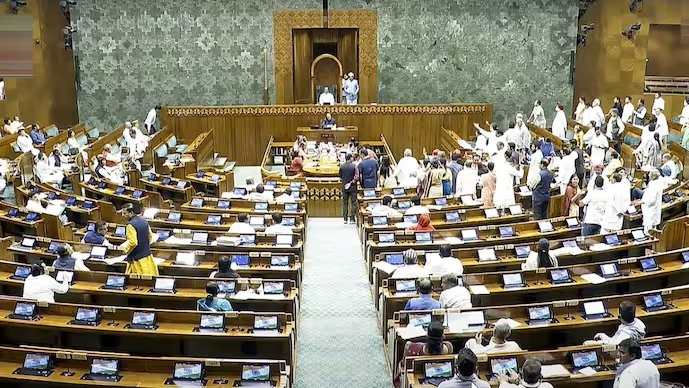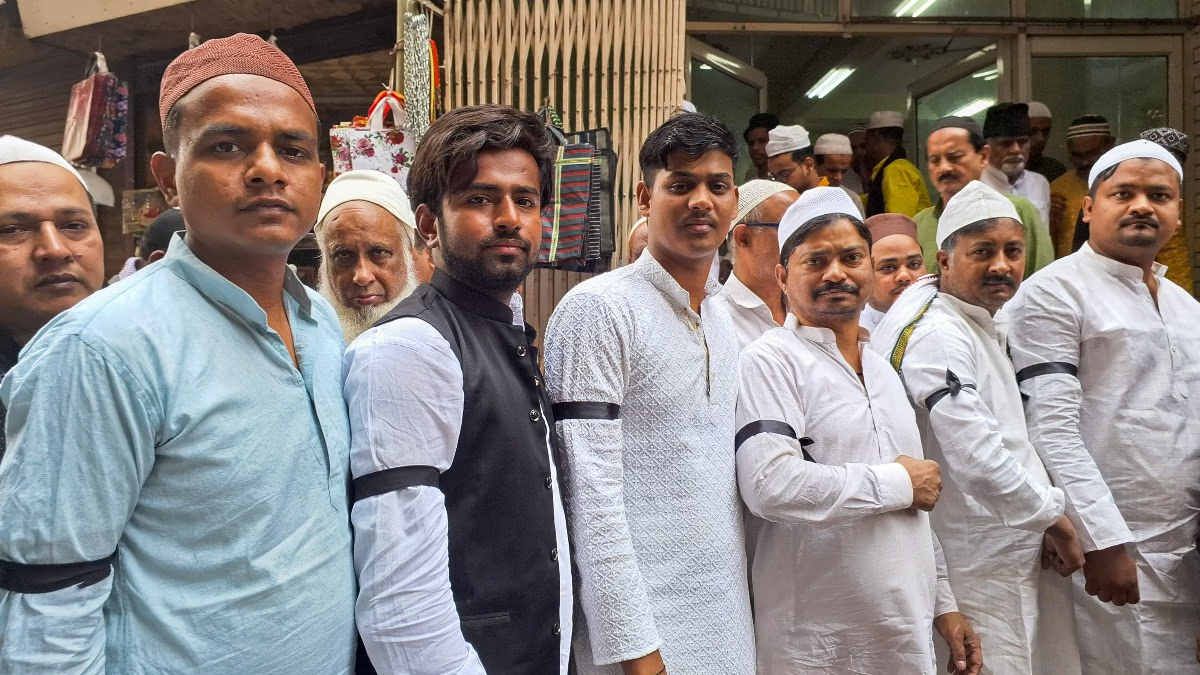Amid significant opposition, Parliamentary Affairs and Minority Welfare Minister Kiren Rijiju presented the Waqf Board Amendment Bill in the Lok Sabha. Earlier, a parliamentary committee (JPC) proposed 44 amendments, of which about 14 were accepted by the JPC led by Jagdambika Pal. The amended bill had already been approved by the cabinet. Let's explore some crucial questions about waqf and the journey of its history.
What Exactly is Waqf?
The word 'waqf' originates from Arabic, derived from 'waqufa', meaning to pause or stop. In Islam, waqf refers to property dedicated for public welfare. It is akin to a donation, and donors can offer movable or immovable property. The vital condition is that it must be donated for public welfare purposes. Donors, known as 'waqifs', can dictate how the donated property or its income will be used.

Source: aajtak
A Story from Islam about Waqf
There's a story where Caliph Umar obtained a piece of land in Khaybar and consulted Prophet Muhammad (peace be upon him) on its best use. The Prophet advised, 'Restrict its ownership, bind it, and utilize the benefits for the people's needs. Sell it not, nor gift it, nor bequeath it.' Thus, the land was made a waqf.
A similar event during Prophet Muhammad's era involved waqf of a date plantation with 600 trees, its income aiding Medina's poor, among the earliest waqf instances. Another example is Cairo's historic Al-Azhar University, founded in the 10th century for Arabic and cultural studies, also a waqf.
When Did Waqf Arrive in India?
With Islam's advent in India, waqf presumably arrived, yet historians struggle to determine its precise initiation period. The first ruler to 'officially implement' waqf remains uncertain.
Possible Beginnings with Muhammad Ghori
Historically, waqf in India began with two villages donated by Muhammad Ghori after defeating Prithviraj Chauhan, supporting Islamic centers and mosques. India's first significant waqf example stems from this period. Some say the Waqf Board is India's third-largest landholder after Indian Railways and the Indian Army, starting in the late 12th century in unpartitioned Punjab, spreading under Delhi's sultanate rulers.
Waqf, part of Islamic tradition, gained prominence during Muslim rule in India. As early as the 7th century, Arabian traders brought both Islam and waqf to Southern India. Its royal implementation began with Delhi's sultans in the 13th century.

Source: aajtak
Delhi Sultanate and Waqf
The arrival of Islam in India brought waqf's first documented instances during the Delhi Sultanate. Primarily, rulers (waqifs) with vast lands established waqf, overseeing mosques built as waqf properties, organized by local committees.
India's Delhi Sultanate begins with Qutbuddin Aibak (1206-1210), India's first Islamic rule founder. Aibak and successors like Iltutmish (1211-1236) encouraged property dedications for mosques, schools, and charities, early waqf forms. Though unclear who officially implemented waqf first, Iltutmish structured Islamic laws, including waqf.
Waqf in the Mughal Era
During the Mughal era, Babur (1526-1530) and later Akbar (1556-1605) formally organized waqf. Akbar promoted waqf for charities and land donations, leading to broader acceptance. Iltutmish likely laid India's waqf tradition foundation, though it evolved gradually, with waqf-like properties existing before its naming.
Waqf During British Rule
Famed historian Prof. Irfan Habib discusses waqf's history, tracing its origins from British rule to Islam's beginnings. He explains, 'The British officially started the Waqf Board in 1913, formalizing it with the 1923 Waqf Act. However, it existed informally as individuals donated properties for charity, education, and religion.' Pre-existing waqf properties were managed by landowners and nawabs who donated to societal benefit.
According to Habib, organized waqf attempts by the British were refined over time, like in 1995, although maintaining its core intent remains challenging. Habib notes, 'Waqf property isn't limited to land; it includes buildings, cash, or any donations. Historically, landowners donated, but the practice waned. Waqf's intent was for poverty relief, education, and religious uses. Community members and donor representatives formed boards, overseen by the government.'
Concerns About Waqf's Current State
Habib voices concerns about waqf's current state, saying, 'Property without ownership leads to misuse. Waqf properties often suffered this fate due to poor governmental oversight.' He warns, 'Community control is crucial. Government ownership or external intervention undermines its purpose.' Habib acknowledges skepticism about recent governmental amendments, noting, 'Being a significant real estate, there's fear of exploitation, a legitimate concern.' In Islam, waqf values blend with Zakat and Fitra, evolving as a distinct later concept.
Overall, Habib emphasizes waqf-like systems exist worldwide under various names, all serving charitable causes. He comments, 'Different countries might not call it waqf, yet all engage in charitable work.' Habib views waqf as a societal protocol, urging collective responsibility to preserve its spirit.

Source: aajtak
The Importance of Waqf
Similarly, Maulana Khalid Rashid Firangi Mahli (All India Muslim Personal Law Board member, Lucknow) states, 'In Islamic law, waqf holds importance akin to prayer, fasting, and pilgrimage. Waqf tradition spans approximately 1400 years in India.' He explains, 'Waqf means transferring property rights to Allah, intended for public benefit.'
The Personal Tradition of Waqf
Misunderstandings often cloud waqf's perception. Rashid argues, 'Claims of waqf boards seizing land are groundless. Waqf cannot cover non-owned land. Historically, Muslims privately donated lands for waqf.' Globally, Rashid notes, 'Over 90% waqf properties are religious sites such as mosques, shrines, and cemeteries.' He stresses, 'Waqf always emerged personally, not through imperial initiation.' Ultimately, waqf remains a religious issue, now requiring good faith restoration. The central government's amendment bill's impact is yet to be observed.




